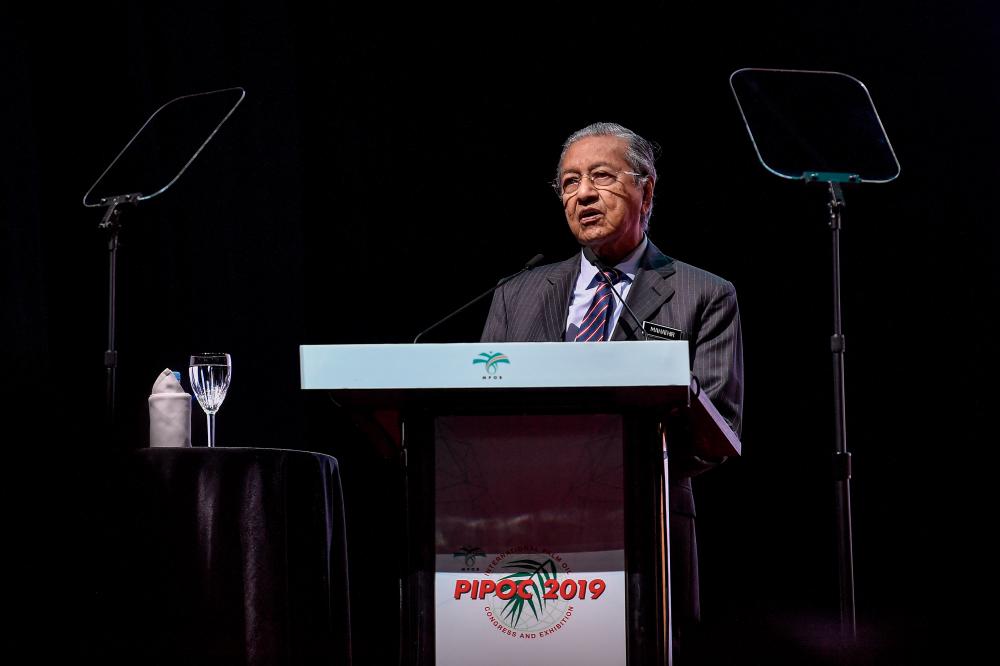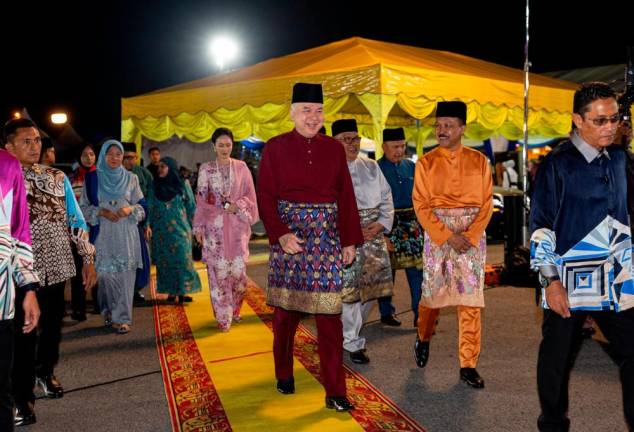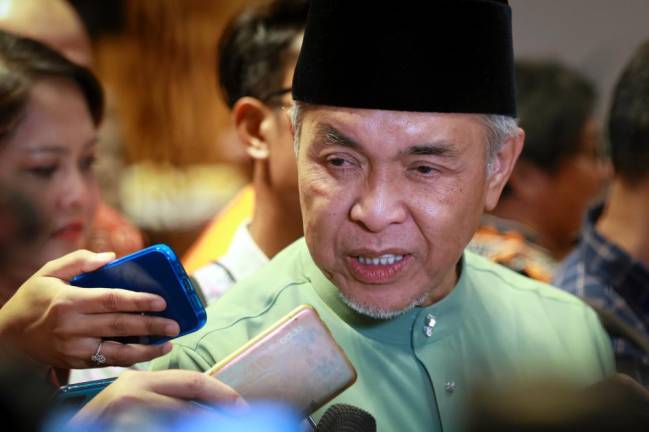KUALA LUMPUR: Prime Minister Tun Dr Mahathir Mohamad has dismissed claims by critics that the palm oil industry is leading to deforestation, claiming the crop is only planted in certain designated areas.
He stressed that the country’s palm oil plantations have proactively and positively embraced sustainability practices despite criticism from global environmentalists, pressure groups, green consumerists and NGOs.
“I want to stress that palm oil plantation is not a major cause of deforestation as it accounts for only 0.4% of the total global agriculture area.
“In Malaysia, palm oil is mainly planted in designated agricultural land and the opening of new plantations has plateaued in recent years and will remain as such,” he said in his keynote address at the International Palm Oil Congress and Exhibition 2019, here, today.
Mahathir noted that he had pledged, back in 1992, to maintain at least 50% of Malaysia’s land mass under forest cover, and that until today, the country has not reneged on this.
“The latest figures showed about 55% of Malaysia’s 33 million hectares of land area is under forest cover, exceeding Malaysia’s initial pledge at the Rio Earth Summit,” the PM proudly pointed out.
The negative publicity campaigns against palm oil, he says, has been mainly due to reasons intertwined with political and economic agenda, and noted that the European Union has been misled into phasing out the use of palm-based biofuel in the transportation sector by 2030.
He said in reality, producing palm oil was more efficient compared to other oils and oil seeds, as it requires the least land area yet produces a high yield.
“The average yield of oil palm is 4 tonnes of oil per hectare per year which is 4 times higher than rapeseed, 5.4 times higher than sunflower, and 8 times higher than soya bean.
“Therefore, a ban on palm oil will not stop deforestation, but will lead to more opening of land-intensive oilseed crops to keep up with the rising demand,” he said.
Mahathir pointed out that Malaysia and other palm oil-producing nations are stepping up efforts to disseminate accurate information about sustainable oil palm plantations and to counter false allegations concerning the crop.
He urged palm oil producing countries not to remain silent or hesitate to take counter measures should certain importing countries choose to impose discriminatory trade barriers.
“If there is any evidence that such discriminatory practices are in violation of any international laws, Malaysia and other producing countries under the Council of Palm Oil Producing Countries (CPOPC) must seek intervention from the World Trade Organisation,” he said.










